The second book in a series is notoriously difficult to write. As readers, I’m sure we’ve all experienced the unique disappointment of a sequel that just doesn’t live up to the potential of the first book. Having now written the second book in my Age of Darkness series, I definitely have a new appreciation for the challenges and pressure of writing a sequel.
A good sequel doesn’t just continue the story of the first book—it evolves it. It challenges the characters in new ways, deepens the world, and leads the reader into the next book like a tightly held breath. It should, in fact, be the strongest part of a trilogy. The crux of the story and the glue that holds it together. A good second book should feel like pressing down on the accelerator and taking each curve at a hard swerve. Here are 5 sequels that manage to blow their (already amazing) first books out of the water.
The Wicked King by Holly Black (Book 2 of The Folk of the Air series)
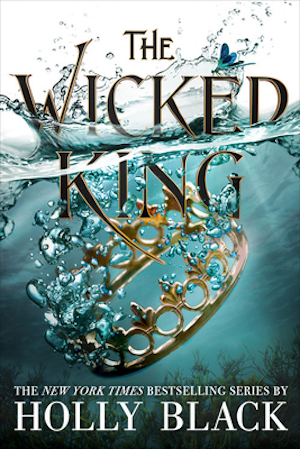
Holly Black’s most recent series is some of the best YA fantasy out there, and its strongest entry is the second book. Jude’s arc in this sequel is the perfect evolution of her arc in the first book, as she navigates the twisty political machinations of the Faerie court in a position of power–a position that relies on her ability to maintain the upper hand in a power struggle with High King Cardan. And while Holly Black expands the world of Faerie somewhat in this installment, she smartly keeps a tight focus on the court intrigue and fraught family drama. Reading this book was like getting a masterclass in maintaining and deepening tension. What really seals it as my favorite, though, is the flawless ending that had me desperate for the third book in the trilogy.
Now I Rise by Kiersten White (Book 2 of The Conqueror’s Saga)
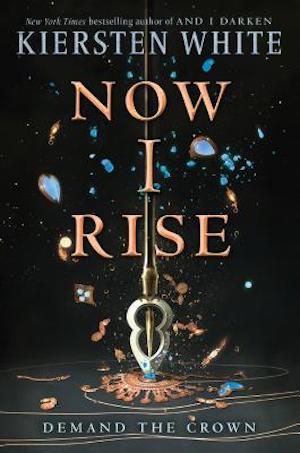
This alternate history series about what would happen if Vlad the Impaler was a woman is as brutal and fierce as its protagonist Lada—who only gets fiercer and more brutal in the sequel. The stakes are raised, as Lada is no longer a political prisoner of the Ottoman Empire, but slaughtering her way through Eastern Europe to reclaim the throne of Wallachia. I adored her development in this book, watching her slowly amass a band of followers without once capitulating on how fearsome and ferocious she is.
Unlike Lada, her brother Radu’s loyalties (and heart) lie firmly with Mehmed, Sultan of the Ottoman Empire, which leads him to play spy in a Constantinople under siege. In the first book, Radu quickly adapts to his life in the Ottoman Empire and changes his loyalties accordingly–but in this book, that loyalty is truly tested. The way this second book deepens and complexifies the character arcs set up in book one is why it’s one of my favorite sequels ever.
Storm of Locusts by Rebecca Roanhorse (Book 2 of The Sixth World series)
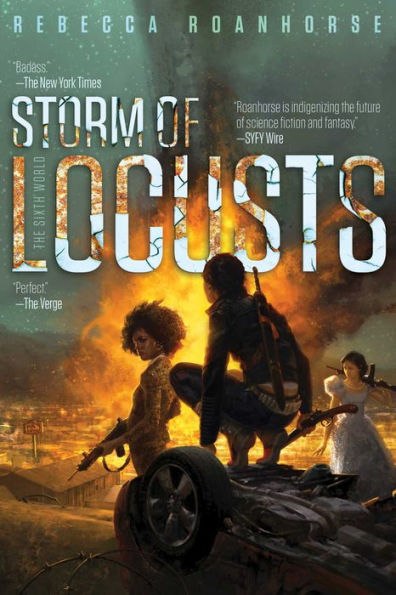
After devouring the Hugo and Nebula nominated Trail of Lightning, I wasn’t sure how a sequel could possibly surpass this wildly inventive fantasy based on Navajo mythology. Yet somehow, Rebecca Roanhorse manages to take everything incredible about the first book and turn it up a notch in this sequel. It expands the world, as Maggie’s adventures lead her outside the Walls of Dinétah to the post-apocalyptic wasteland of Big Water. It gives us new characters to fall in love with, and the relationships that form between Maggie and her motley (all-female) crew were some of the most delightful parts of this book. Maggie’s growth in this book was really rewarding and felt very earned as she is forced to take care of others and let them take care of her. Plus, this book has one of my all-time favorite kinds of villains—a shadowy cult leader with creepy powers. What more could you want?
A Torch Against the Night by Sabaa Tahir (Book 2 of the Ember Quartet)
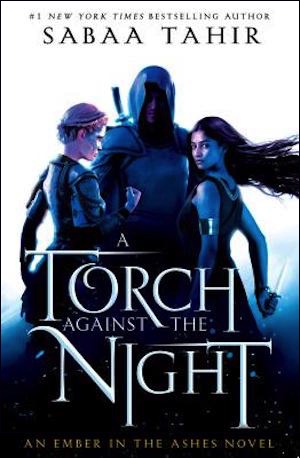
Every single book builds so beautifully off the last in this series about a soldier and a slave caught in the claws of a brutal empire. But I particularly love the second book for how it takes bigger risks than the first. Torch expands the world of the Martial Empire, not just in that we get to see more places on the map, but also that Tahir includes a third POV, that of Helene Aquilla. Choosing to include Helene not only gives us insight into her inner conflicts, but also into the political machinations at the heart of the empire.
The plot twists in this book are incredible, and make it clear that this series is not going to pull any punches when it comes to depicting the brutality of this world. But that doesn’t mean the book is all bleakness and suffering—some of my favorite parts were the developing romance between Elias and Laia, as well as the sibling relationships in both Laia and Helene’s viewpoints. I also loved how this book deepens the mythology of the jinn and the mysterious Nightbringer. This book effortlessly weaves together the many plot threads of the series, making it one of the strongest sequels I’ve ever read.
The Winner’s Crime by Marie Rutkoski (Book 2 of The Winner’s Trilogy)
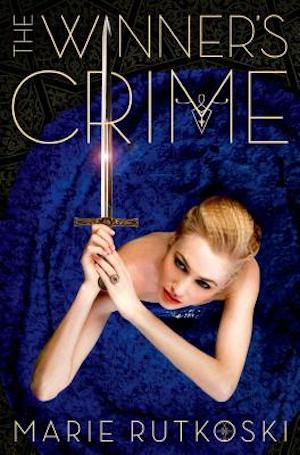
One of my favorite aspects of The Winner’s Curse trilogy is its protagonist, Kestrel, and her cunning, calculating mind. While in the first book Kestrel navigates a slave rebellion in her city Herran as well as her conflicted feelings for her formal slave Arin, the second book ratchets up the stakes by putting Kestrel at the heart of the Valorian Empire, betrothed to the crown prince but secretly spying for Herran.
Arin’s viewpoint is equally captivating, widening the scope of the world as he seeks out allies in neighboring kingdoms while grappling with his feelings for Kestrel, whom he believes has betrayed him. The heartache and longing between the two of them is so beautifully rendered by Rutkoski’s gorgeous prose, and the more conflicts that come between these characters, the more I rooted for them. This is another sequel where the end had me yelling and counting down the days to the third installment.
Buy the Book
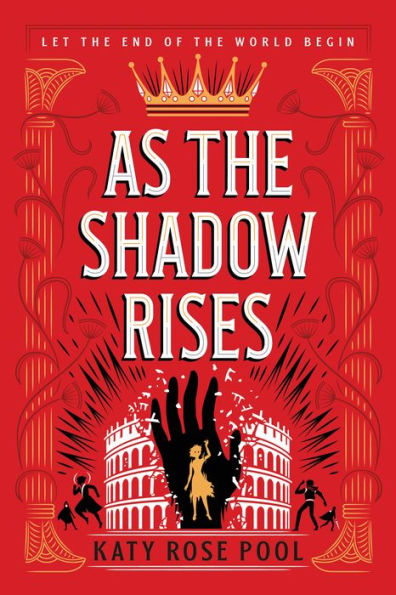

As the Shadow Rises
Katy Rose Pool was born and raised in Los Angeles, California. After graduating from UC Berkeley with a degree in history, Katy spent a few years building websites by day and dreaming up prophecies by night. Currently, she resides in the San Francisco Bay Area, where she can be found eating breakfast sandwiches, rooting for the Golden State Warriors, and reading books that set her on fire. As the Shadow Rises, book 2 in The Age of Darkness Series, is available now from Henry Holt & Co.










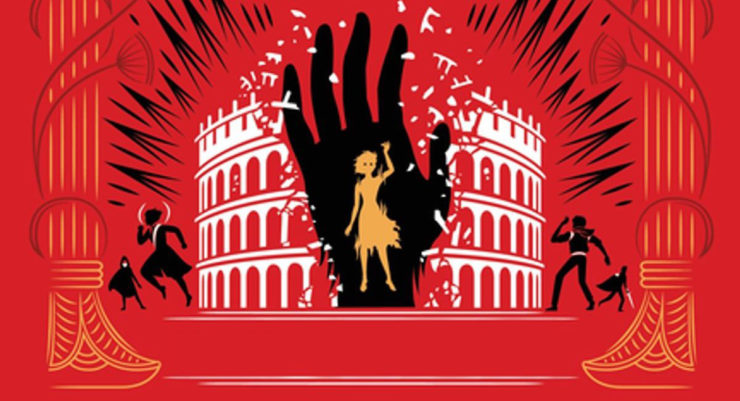
My favorite “sequel that exceeds the first book” is The Scar by China Mieville.
(But then came [shudders] Iron Council, which IMHO is the VERY worst third book I’ve encountered in 35 years of reading. But YMMV)
I actually didn’t like Storm of Locusts as much as Trail of Lightning, mainly because the world outside of the reservation wasn’t as interesting to me. With the first book, the setting and the world felt so unique and I felt like the feeling of loss was diminished once we travelled back into the remnants of the white man’s civilization.
The True Bastards by Jonathan French was so much better than the Grey Bastards, mainly due to the change to a female protagonist. The first book was interesting but struggled at times to rise above being ‘Sons of Anarchy with orcs.’ The second book was much stronger and much more enjoyable. Having the book focus on the struggles of a female character greatly, greatly improved the story.
I’d have to put Harrow the Ninth in this category, mainly because most of the book is, “but, but, it didn’t happen that way” and the *why* of that is an even better mystery than the opening page’s subtitle about the impending murder of the emperor, or the several main plots.
Jumping beyond #2s, I’d put The Wounded Land by Stephen Donaldson in a similar light: boy, did the world change. The rest of the second trilogy didn’t hold up quite as well (still very good), and for the most recent books I can only say, “ugh.”
Lyrael by Garth Nix also spins the heck out of the world of Sabriel. Better? Maybe not, but quite enjoyable.
But anyone who puts Dune Messiah on this list is probably not going to be a friend of mine.
Paladin of Souls following The Curse of Chalion.
@1 I have never agreed with a comment more. Perdido was good, but I can never make it through a full reread. I reread The Scar at least yearly. I refuse to even re-download my eBook of Iron Council.
@@.-@: And that’s saying something, because Curse of Chalion was very good to start with. Paladin of Souls, though, wow. Blown away.
I have two suggestions for books which fulfill the criteria and met with mixed receptions, both by the same author: Earth Made of Glass and Kaleidoscope Century, by John Barnes.
Earth Made of Glass follows A Million Open Doors, a fundamentally optimistic coming of age story, with a Grahame Greene-style tragedy on a grander scale than Greene ever tackled.
Kaleidoscope Century follows Orbital Resonance, a post-Judy Blume Heinleinesque juvenile, with an intensely bleak and hopeless story of societal chaos and a love story as charming as the written version of Lecter and Clarice.
Neither of those books are anything like the books which came before them. I think they are better than the ones which came before, and that Kaleidoscope Century in particular is one of the best, most horrid books I’ve ever read.
+1 for Paladin of Souls. Both that and Curse of Chalion are among my all-time favorite books.
In the Wheel of Time series, the second book is a fairly popular choice for “best book in the series,” but the dynamics are different in a series which is that long.
I also think that Wise Man’s Fear is even better than the Name of the Wind. I don’t know about the third book, though.
@8 robertstadler:
“I don’t know about the third book, though.”
LOL
nobody does…nobody does {forlorn sigh}
While I truly enjoyed Adrian Tchaikovsky’s Children of Time, it sequel Children of Ruin struck me as much more satisfying. CoT included the anxiety caused by two separate characters descending into lethal madness and the pleasure of one uplifted non-human species; CoR does include a shard of one of the insane minds but without a long progression, yet presents THREE fully-realized non-human species, two uplifted Terran species and one really, truly alien. With Tchaikovsky writing such tight presentation as those elements deserve, Children of Ruin for the win as a superlative sequel.
There are many! Sometimes the author has more writing resources and experience, and has reflected more, and it shows.
Three examples from SF. Mind, the first novel in each of the three cases is a good one. It is only that the second one is a better work.
1. John Varley’s Steel Beach > The Ophiuchi Hotline. (The Golden Globe follows up and is very good as well)
2. Neal Stephenson’s The Diamond Age: Or, A Young Lady’s Illustrated Primer > Snow Crash
2. David Brin’s Startide Rising > Sundiver
Megan WhalenTurner’s books (starting with The Thief) fit into this, I think, in that every book in her series is excellent.
I liked The Great Hunt much more that The Eye of the World. Same goes for The Elfstones of Shannara as compared to The Sword of Shannara.
I think a lot of the weakness of second books has more to do with the fact that so many works are written as trilogies than an inherent factor of second books in and of themselves.
Julian May’s ‘The Golden Torc’ following ‘The Many Coloured Land’.
Words of Radiance is much better than The Way of Kings. (It’s also much better than Oathbringer – hopefully we get some of that WoR magic back in book 4).
Wow @1 and 5. Iron Council is not as good as The Scar (an outright masterpiece) or Perdido but it’s still pretty good! I wish Mieville would write more stories in that universe.
All the Discworld books after The Color of Magic.
Agree about the Discworld books.
And for better second books in a subseries, Hat Full of Sky > The Wee Free Men.
There are a ton of series that fit this mold I feel. A few that jumped out at me:
The Arm of the Sphinx is in my opinion far superior to Senlin Ascends. I would say the Hod King falls in between somewhere, but I still enjoyed it more than Senlin Ascends.
Agreed with the above mention of Harrow as well, I found it a much more exhilarating read throughout, while Gideon takes a bit to get started.
An example of the final book in a trilogy being the best would be Imago of the Xenogenisis books. I think it completes all the development and world building done by the other books and provides a really satisfying conclusion. Also it’s the only book in the series where the majority of the human characters weren’t completely awful, Adulthood rites specifically had some of the most unlikable characters in the series
Depends on the reader, but I’ll submit:
The Dark Forest > The Three Body Problem (Cixin Liu)
The Ghost Brigades > Old Man’s War (John Scalzi)
Green Mars > Red Mars (Kim Stanley Robinson)
Circe > The Song of Achilles (Madeleine Miller) (not really a series, but…)
How about both Count Zero and Mona Lisa Overdrive being actually a little better than Neuromancer.
City of Blades
The first book City of Stairs is undoubtedly fantastic but Blades elevates writing, character, and plotting to a level of perfection that made the book an instant classic. It’s a shame more people haven’t read the series.
Dragon Republic > Poppy War by R.F.Kuang
I guess most people would regard LOTR as being better than The Hobbit? (I actually prefer the latter)
Also The Dark is Rising.
Agreed on Green Mars > Red Mars.
Have to add Deadhouse Gates > Gardens of the Moon.
I’m less convinced that Count Zero and/or Mona Lisa Overdrive builds substantially on Neuromancer. However, I’d definitely make a case for Idoru and especially All Tomorrow’s Parties beating Virtual Light.
I would have to add “Stoker’s Wilde West,” I like the first book but this is better now that the world-building is out of the way. A fun ride as Oscar Wilde and Bram Stoker fight a vampire uprising in the American Wilde West.
The Scar is arguably better than Perdido in a lot of ways, but I would say Perdido and the Scar are overall practically tied. Iron Council is pretty bad though. It’s a beautiful idea and it has one of the most beautiful endings I’ve ever read, but most of it is so disappointing compared to the first two books, I think mainly because he focused so little on characterization.
While Robert Holdstock’s Mythago Wood is good, the following novel Lavondyss is totally stunning. Unfortunately, you do have to read the first book to understand the second but it’s absolutely worth your time.
BTW, I just noticed that all of the books in the list are less than five years old. Is there any reason why you haven’t gone farther back?
Perelandra is better then Out of the Silent Planet by C.S. Lewis.
Strongly second Deadhouse Gates as being better.
I like Paladin quite a bit but Chalion to me is better.
I’ll avoid Dune, since Herbert never wrote any sequels to his perfect novel (;-)), but I’d contend that Dosadi Experiment is much better than Whipping Star.
I’d also say that either of the two follow ups to Bujold’s Shards of Honor (either Warrior’s Apprentice or Barrayar, depending on whether you go by publication or internal chronological order) are better.
@32 Now that Frank Herbert is mentioned, what about The Jesus Incident vs Destination: Void?
By the way, as you may know, The Jesus Incident inspired the setting of the PC game Sid Meier’s Alpha Centauri.
Speaker of the Dead far exceeded Ender’s Game in maturity, depth and writing.
@34 Good one.
@10 Agreed on Children of Ruin being better than Children of Time. We need more books about octopi!
One of my favorite all time novels is A Fire Upon the Deep, but the next book (actually a prequel) is even better: A Deepness in the Sky.
I’ve always though The Guns of Avalon was the defining example. Not that I haven’t agreed with most of the examples posted here, but Guns was my first.
I would also add The Girl in the Tower by Katherine Arden to this list, along with Legendary by Stephanie Garber.
BY FAR the best second book in a series is Speaker for the Dead, the sequel to Ender’s Game.
@31 Second on Perelandra. Here are some more:
1. Raven King Trilogy by Stephen R. Lawhead – This is a fascinating retelling of Robin Hood as a Welsh freedom fighter trying to buy back his land. Hood was passable, but the second book, Scarlet, is a joy to read. The 3rd book, Tuck, is better than the first, but comes nowhere near the second.
2. Starsight (Brandon Sanderson) was better than Skyward. There was nothing wrong with Skyward, except it being a bit paint-by-numbers. Starsight blew me away.
3. The 3rd book of Percy Jackson is better than books 1 & 2 combined. 4 and 5 retain the quality.
@@@@@37. pcarter Very much agreed on A Deepness in the Sky.
Caroline Stevermer’s A College of Magics was a nice enough book. I liked the first half; the residue was less interesting.
I never had that problem with the sequel, A Scholar of Magics. Which is on my comfort-read list.
Love this list and the comments. Children of Ruin, Deadhouse Gates, and Paladin of Souls are going on the TBR list. I enjoyed the firsts in those series, but for some reason never picked up the seconds.
@37 and 42: Very much agree about Fire Upon the Deep and Deepness in the Sky- both were brilliant, but Deepness took it that much further in character development and complexity. Ah, all those the spider feels and googly eyes.
Also agree on Barrayar or Warrior’s Apprentice as better than Shards of Honor (ugh– it took me 20 years to pick Bujold back up because my first foray was Shards). So glad I did– I adore the rest of the Vorkosigan Saga.
Yes to Snowcrash, but no to Count Zero and Mona Lisa Overdrive. They just didn’t have that same level of cyberpunk cool.
Not sure I agree on Speaker versus Ender, but that may have been a maturity issue since I read them in my teens and now don’t feel like re-reading ’em.
On the urban fantasy front, I’d say that Sarah J. Maas’s Court of Wind and Fury is one of the better second books I’ve read with a great twist on the first and Ilona Andrews’s Magic Burns was much better than Magic Bites (but maybe bc the audiobook for the first sucked and I went paper for the second– so glad I did, same level of adoration there as for Barrayar).
Also, hooray for authors who write series for us. Nothing better than revisiting old friends in a new story.
Maybe it’s not the best sequel exactly but I’d say Expiration Date by Tim Powers over Last Call. Earthquake Weather? Meh.
(Declare of course is the real winner.)
For something more on the silly side:
The Eyre Affair by Jasper Fforde is good. The Well of Lost Plots is hilarious and fun and has even more consistent world-building and made me fall in love with the ‘verse.
#26: The Dark Is Rising is a tricky case, because if I remember correctly, Over Sea, Under Stone was originally written to stand alone – the series framework came later. (I like both books, but I think they’re in different subsets, and hard to compare one to the other.)
OTOH, I am a bit startled that no one’s yet mentioned Deep Wizardry, second in Diane Duane’s “Young Wizards” series. So You Want To Be A Wizard is a wonderful and seminal book of its kind…but Deep Wizardry blew me away when I first read it, and I still think it may be one of Duane’s two very best books out of a distinguished list. I remember thinking as I read this that “wait, this is clearly the second book of a series, she can’t DO that”, and then realizing “she’s actually DOING that” and thinking “but then she can’t…” and realizing “…she just DID”. And so on. Duane does not write her way out of corners; she barrels into the corners straight on and bashes through the walls on her way out, and Deep Wizardry is one of the prime examples of this approach.
[You will notice that the foregoing says almost nothing about specific plot points. This is deliberate. If you have not read the book, my view is that you’ll best appreciate the reading experience going in cold; if you have read the book, I imagine you’ll recognize the foregoing reading experience.]
Alan Smale’s epic “Eagles” alt-history improved with each book; all three are excellent.
However, Eagle in Exile (book II) > Clash of Eagles.
Many good comments above, esp. Green Mars > Red Mars
and
Perelandra > Out of the Silent Planet.
WHAT about Dan Simmons?
I’d vote The three books after Hyperion are better.
So many people have said “Green Mars > Red Mars”, and I do like Green Mars better, but I’m curious:
Is there anyone else who bought all three at once, slurped down the first two, and has since looked at the third one in fear it’s going to screw up a perfectly good ending state and has not touched it as a result?
@47 extremely cosigned! There are lots and lots of places where Young Wizards brings me to emotional peaks, but Deep Wizardry is absolutely there at the top.
@45 Couldn’t agree less about Expiration Date vs. Last Call. Couldn’t agree more about Earthquake Weather.
I don’t know about better, but for a startlingly different and successful change of tone, it’d be hard to beat Kage Baker’s Sky Coyote.
And off-topic-wise as far as genre goes, Patrick O’Brian’s Post Captain is superior to the still terrific Master and Commander.
@49, Don’t deny yourself Blue Mars out of fear. It’s a good read. And there’s a book of related short stories too, in The Martians.
@25 – I don’t think your example counts. The Hobbit was written for Tolkein’s children (the onomatopoeia just begs to be read aloud) while The Lord of the Rings, while set in the same world, is for an adult audience and a different kind of story.
When True Night Falls by C.S. Friedman. I love Black Sun Rising. But True Night is probably the strongest book in the trilogy.
Sarah J. Maas’ masterpiece in my opinion is A Court of Mist & Fury, book 2 of the Court of Thorns & Roses series… Followed of course by the perfect wrap up in A Court of Wings & Ruin… But Feyre’s character’s complete break & reassembly in the 2nd book is character driven fiction at it’s very finest.
Thank you to the commenters who suggested The Scar. Had forgotten it. Got inspired and got the Audio version. It is terrific
My favorite in this category has to be M.R. Carey’s “The Boy on the Bridge” as the follow up to “The Girl With All the Gifts.” The constantly building horror, the constant wondering what else can possibly go wrong for these people, and the satisfying ending just do it for me.